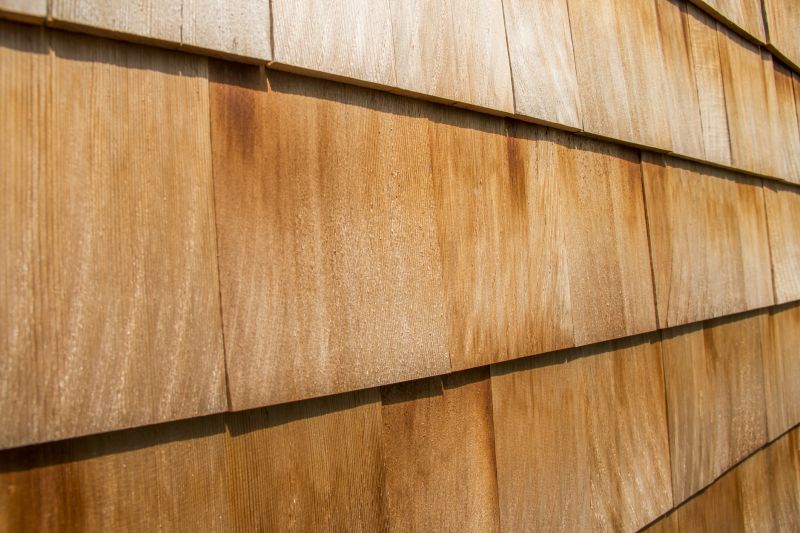Ultimate Guide To Products For Wood Siding Replacement
Get insights into the essential products that ensure a smooth, durable, and visually appealing wood siding upgrade.
 Replacing wood siding is a significant aspect of maintaining and restoring the exterior of a building. When selecting products for this purpose, it is important to consider materials that offer durability, ease of installation, and compatibility with existing structures. Common options include various types of siding materials such as fiber cement, vinyl, composite, and engineered wood products. Each material has its own set of advantages and considerations, making it essential to evaluate the specific needs of the project, climate conditions, and aesthetic preferences.
Replacing wood siding is a significant aspect of maintaining and restoring the exterior of a building. When selecting products for this purpose, it is important to consider materials that offer durability, ease of installation, and compatibility with existing structures. Common options include various types of siding materials such as fiber cement, vinyl, composite, and engineered wood products. Each material has its own set of advantages and considerations, making it essential to evaluate the specific needs of the project, climate conditions, and aesthetic preferences.
Top Overall Option
Engineered Wood Siding
Engineered wood siding is a versatile and durable choice that offers the aesthetic appeal of traditional wood with enhanced resistance to moisture, pests, and rot. It is manufactured from wood fibers and resins, making it a lightweight yet strong option suitable for various architectural styles. Easy to cut and install, engineered wood siding can be painted or stained to match desired finishes, providing flexibility in design. Its consistent quality and performance make it a popular choice for those seeking a reliable and attractive siding material.
Types of Products For Wood Siding Replacements
Fiber Cement Siding
Fiber cement siding offers a durable, low-maintenance alternative that mimics the appearance of wood while resisting moisture, fire, and pests.
Vinyl Siding
Vinyl siding is an affordable, lightweight option that requires minimal upkeep and is available in a variety of textures and colors.
Engineered Wood Siding
Engineered wood siding provides a realistic wood look with enhanced durability and ease of installation.
Wood Grain Composite Siding
Composite siding with wood grain texture combines aesthetic appeal with resistance to weather and pests.
Metal Siding
Metal siding, such as aluminum or steel, offers strength, longevity, and a modern appearance for various architectural styles.
Stucco Over Wood Frame
Stucco provides a textured, durable exterior finish that can be applied over wood framing for a distinct look.
PVC Siding
PVC siding is a plastic-based material known for its resistance to moisture, pests, and fading.
Clay or Ceramic Siding
Clay or ceramic siding offers a natural, textured appearance with high durability and fire resistance.
Rubber Siding
Rubber siding provides flexibility, weather resistance, and a modern look suitable for various applications.
Composite Shake Siding
Composite shake siding replicates traditional wood shakes with enhanced durability and lower maintenance needs.
Popular Choices
Vinyl siding remains a widely used option due to its affordability, ease of installation, and variety of styles.
Fiber cement siding is favored for its durability, resistance to elements, and realistic appearance.
Engineered wood siding is popular for its combination of traditional look and enhanced performance.
Metal siding is chosen for its longevity, modern aesthetic, and low maintenance requirements.
PVC siding offers resistance to moisture and pests, making it a common choice for various climates.
Composite shake siding is valued for its traditional appearance combined with durability and ease of care.
Stucco finishes are popular for their textured look and durability over wood structures.
Clay or ceramic siding is appreciated for its natural aesthetic and high resistance to weathering.
Rubber siding is gaining attention for its flexibility and weather-resistant qualities.
Composite siding with wood grain textures is favored for its realistic appearance and durability.
Aluminum siding offers lightweight strength and resistance to corrosion, suitable for various designs.
Quality siding products are designed to withstand weather elements, resist pests, and require minimal maintenance over time. For those seeking a traditional wood appearance, engineered wood siding can provide a realistic look with enhanced durability. Fiber cement siding offers a robust alternative that mimics wood grain while providing resistance to moisture and fire. Vinyl siding remains a popular choice due to its affordability and low maintenance requirements, though it may have limitations in terms of customization. Composite materials often combine the best features of various options, offering strength, flexibility, and ease of installation.
When selecting products for wood siding replacement, it is also important to consider the installation process. Some siding options are more straightforward for DIY projects, while others may require professional installation to ensure proper fit and performance. Compatibility with existing structures, insulation needs, and the ability to handle expansion and contraction are additional factors to keep in mind. Proper preparation and selecting the right products can contribute to a long-lasting and visually appealing exterior finish that enhances the overall value of the property.
Ultimately, the choice of siding products should align with your project goals, budget, and local conditions. Carefully evaluating product specifications and consulting with professionals can help ensure a successful upgrade or replacement process, resulting in a durable and attractive exterior that meets your needs.
Key Buying Considerations
- Durability and resistance to weather, pests, and rot
- Compatibility with existing structure and framing
- Ease of installation, whether DIY or professional
- Maintenance requirements and longevity
- Aesthetic appearance and color options
- Fire resistance and safety features
- Cost and budget constraints
- Availability of matching accessories and trims
- Expansion and contraction allowances in material
- Compatibility with insulation and energy efficiency needs
- Warranty and manufacturer support
- Environmental factors specific to your location
- Weight of the siding for structural considerations
- Ease of staining or painting if customization is desired
- Environmental exposure and climate resilience
